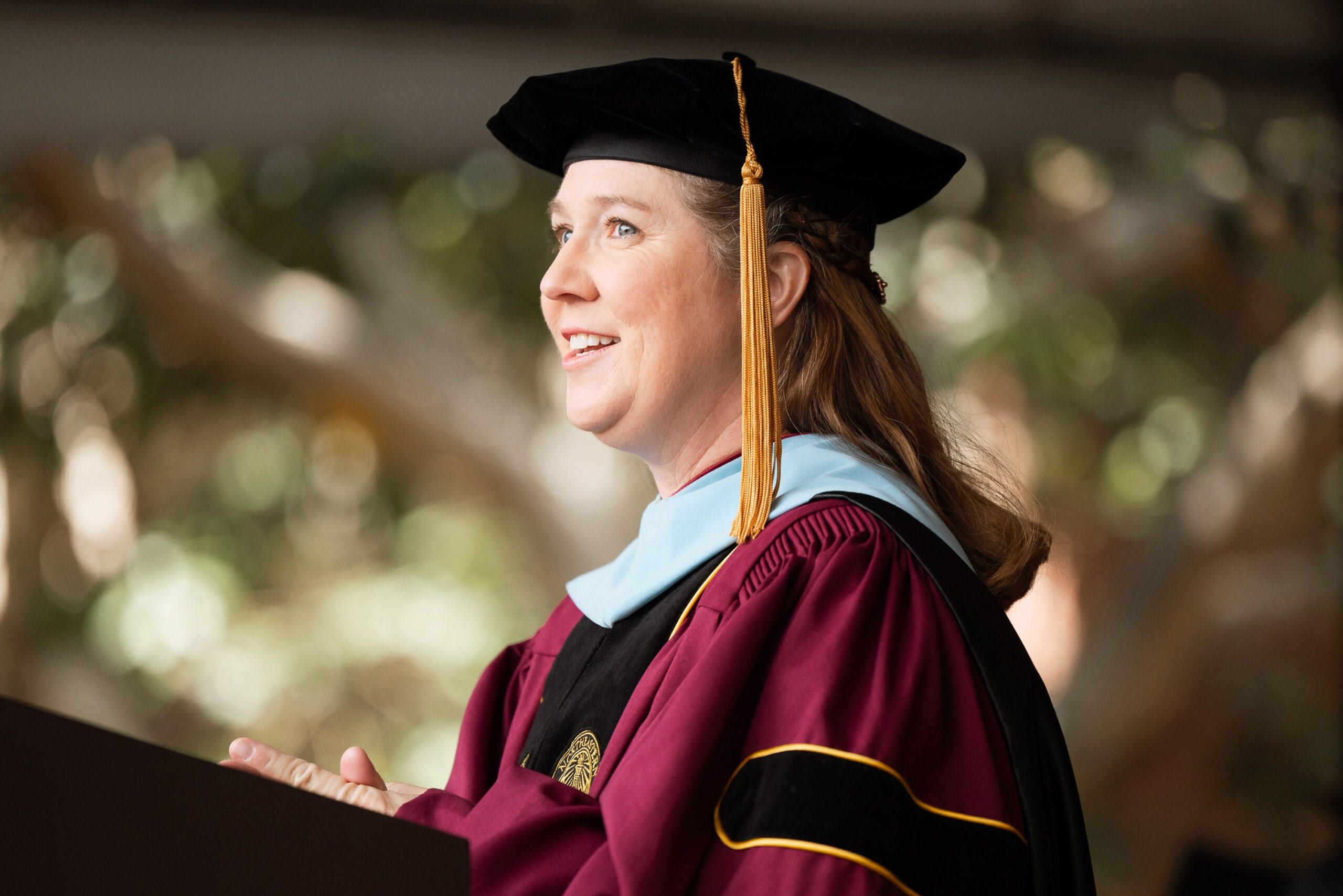
Photo: Stella Kalinina
On Friday, May 10, 2024, graduates of the Master of Science in Emergency Management (MSEM) program attended their commencement ceremony to celebrate their remarkable achievements with family, friends, and peers. This year’s MSEM graduates work across the emergency management field and are prepared to protect communities and safely respond to emergencies that happen all around us.
This year’s commencement ceremony speaker was MSEM Professor Tiffany Danko, a leader in emergency management, maritime and homeland security, intelligence, and international affairs. During her speech, Danko noted the growth and character development this year’s graduating Bovard class went through. “You sit before us as leaders who will build your communities, organizations, colleagues, and the landscape of your disciplines to be ready for the challenges of tomorrow. My fellow faculty and I have watched you evolve as leaders – taking our feedback, accepting the workload, and developing not only ideas and artifacts of your learning but also confidence in yourselves all along.”
Dean Anthony Bailey affirmed the positive impact and change the graduating class will bring to their respective careers. He also congratulated the 6 Order of Arête winners, one of which is MSEM graduate Jazmin Thomas, who is an EMT and firefighter with the New York City Fire Department. Bailey also acknowledged Bovard College’s first winner of the Order of the Laurel and the Palm, the highest honor given to students completing their degrees at USC and who display exceptional leadership and service that makes a lasting impact on the university community and the world at large.
The Master of Science in Emergency Management program prepares students to take emergency management leadership roles in organizations within the private and public sectors. Through courses in critical infrastructure, disaster planning, and operational coordination, graduates will develop strategic, tactical, and decision-making skills that address all phases of emergencies at the local, state, and federal levels.
Designed to fit students’ schedules and needs, the curriculum is provided in both a one- and two-year track. At 24 units, the program can be completed in just 12 months for students in the one-year track. No GRE is required, and students have their choice of three enrollment dates each year.
Watch the 2024 commencement ceremony here.


